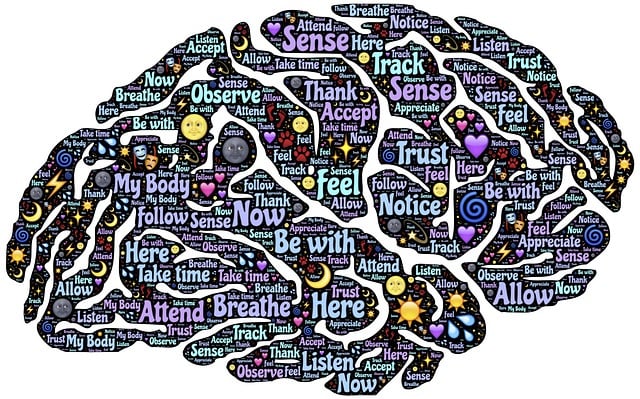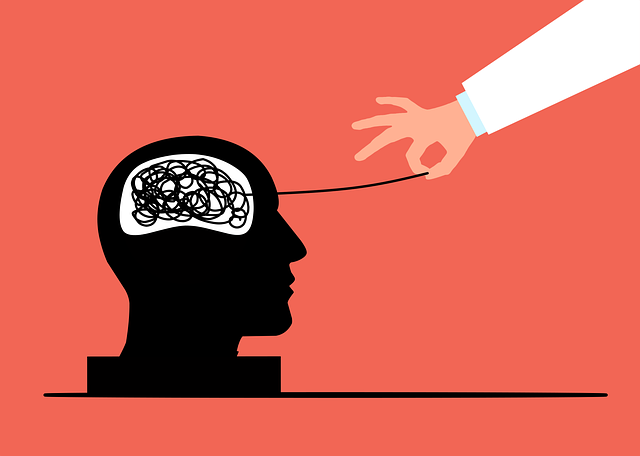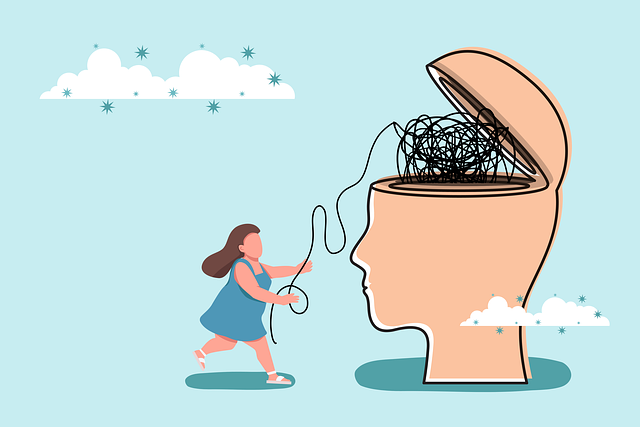Identifying depression signs in young adults and geriatrics is key due to distinct pressures they face. For young adults, encourage therapy focusing on stress management and thought patterns through Cognitive Behavioral Therapy (CBT). Interpersonal Therapy (IPT) addresses loneliness for geriatrics, with cultural sensitivity crucial in tailoring treatments. Lifestyle interventions like regular exercise, balanced nutrition, and mindfulness are universal preventatives. Geriatrics require adapted self-care routines emphasizing social connections, while young adults benefit from strong mind-over-matter principles. Integrating these strategies, including therapy for young adults and geriatrics, offers comprehensive depression prevention tailored to each demographic's unique challenges.
Depression is a prevalent mental health challenge affecting individuals across all age groups, with unique manifestations in young adults and geriatrics. This article explores comprehensive strategies to prevent and manage depression, focusing on early identification through recognizing subtle signs. We delve into therapeutic approaches tailored for young adults and geriatrics, emphasizing evidence-based treatments. Additionally, lifestyle interventions are highlighted as powerful tools for all ages, offering practical guides to foster resilience and well-being. Discover how these strategies can empower individuals to navigate mental health challenges with effectiveness and care.
- Recognizing Depression Signs in Young Adults and Geriatrics
- Therapeutic Approaches for Effective Depression Prevention
- Lifestyle Interventions: A Comprehensive Guide for All Ages
Recognizing Depression Signs in Young Adults and Geriatrics

Recognizing depression signs is crucial, especially when targeting vulnerable demographics like young adults and geriatrics. For young adults, burnout prevention should be a priority due to the pressures of academic and professional demands. The subtle shifts in mood, energy levels, and interest in activities that were once enjoyable can indicate underlying mental health struggles. Encouraging therapy for young adults becomes essential in addressing these issues early on. Similarly, geriatrics may exhibit unique signs of depression, such as cognitive changes or physical health problems, which could be masking emotional distress.
Effective strategies include Mental Wellness Journaling Exercises to help both age groups process their emotions and thoughts, fostering a sense of control and awareness. Additionally, promoting Self-Care Routine Development can significantly improve mental health by teaching individuals how to manage stress, maintain social connections, and prioritize self-preservation, thereby reducing the risk of depression.
Therapeutic Approaches for Effective Depression Prevention

Depression prevention strategies often involve therapeutic approaches tailored to different demographics. For young adults, cognitive-behavioral therapy (CBT) has proven effective, focusing on identifying and changing negative thought patterns and behaviors that contribute to depression. This form of therapy empowers individuals with tools to manage stress and improve their overall well-being. Additionally, integrating conflict resolution techniques within CBT can help young adults navigate interpersonal challenges, reducing the risk of depressive episodes.
In the case of geriatrics, depression prevention strategies may differ due to age-related factors. Interpersonal therapy (IPT) is a commonly used approach, addressing loneliness and social isolation—common issues among older adults. IPT helps individuals develop coping skills and enhance their social connections, thereby reducing symptoms of depression. Cultural sensitivity in mental healthcare practice is also essential, ensuring that therapeutic interventions are adapted to respect the unique cultural beliefs and values of geriatric patients. Incorporating stress management techniques, such as mindfulness and relaxation exercises, can further complement these strategies by helping older adults maintain emotional resilience.
Lifestyle Interventions: A Comprehensive Guide for All Ages

Lifestyle interventions play a pivotal role in depression prevention across all age groups. For young adults, establishing robust mind over matter principles and coping skills development can be transformative. Engaging in regular physical activity, maintaining a balanced diet, and prioritizing quality sleep are foundational components of this strategy. These habits not only boost overall well-being but also serve as natural buffers against stress and anxiety, reducing the risk of depressive episodes.
Moving into later years, or geriatric care, self-care routine development for better mental health becomes even more critical. Adapting routines to accommodate changing physical abilities and sensory needs can alleviate feelings of isolation and helplessness. Social connections remain paramount, whether through community groups, volunteer work, or regular check-ins with loved ones. Combining these lifestyle modifications with evidence-based therapies, such as cognitive behavioral therapy (CBT), offers a comprehensive approach to depression prevention tailored to each individual’s unique circumstances.
Depression prevention is a multifaceted approach that includes recognizing signs early, exploring therapeutic options like cognitive-behavioral therapy (CBT) tailored for both young adults and geriatrics, and adopting lifestyle interventions. By combining these strategies, individuals across age groups can effectively manage and prevent depression, enhancing their overall well-being. For young adults and geriatrics alike, the right support and self-care practices can foster resilience and promote a healthier, happier life.














